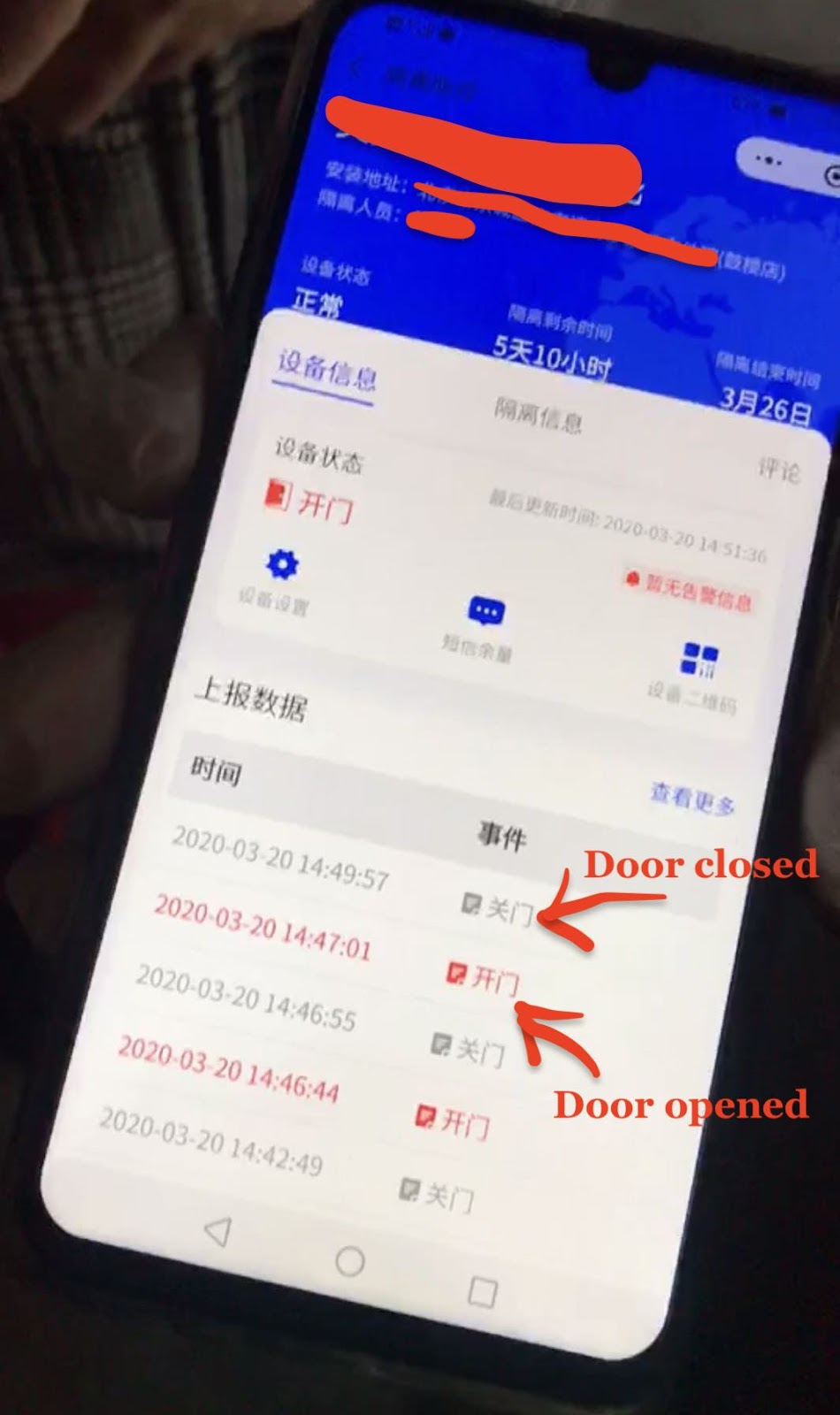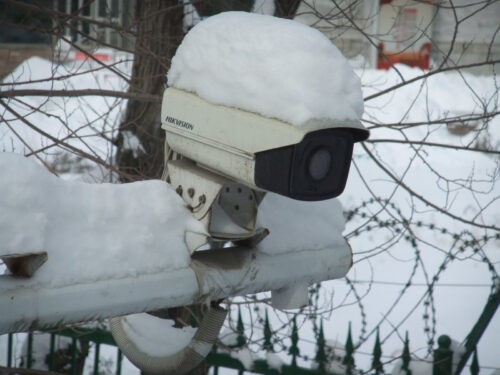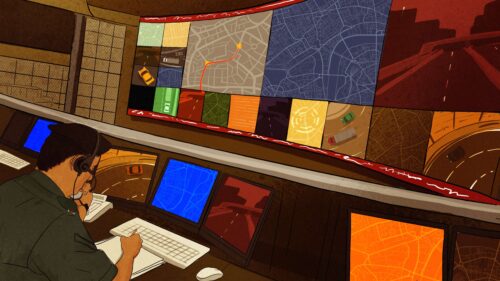In Beijing, social monitoring and control turns Kafkaesque

Photo by Nina Dillenz
“From China’s perspective, without redoubled efforts, it may be just a matter of time before the virus gets back in,” I wrote last week. The implication was not that China should enact stricter measures, but that diseases as infectious as the novel coronavirus are nearly impossible to contain. What we’re seeing now is how far China will go to defy the odds.
Social monitoring and control has intensified in the past week. As of last Monday, all who enter from abroad are subject to a mandatory 14-day quarantine at a designated location at their expense, which can run nearly $100 per night, paid upfront. For those who slipped in just before Monday, enforced home quarantines are in order, sometimes with the help of technology. I know more than one person who’s had a motion sensor installed on their door. The sensor is connected to a WeChat mini-program, which tracks every time the door is opened and closed:
One friend of mine, whose roommate recently returned from abroad, was informed on Friday that she has to be quarantined with him even though she herself hasn’t left the country. She described the situation as “Kafkaesque.” Appropriately, she found the humor in it: All food deliveries are handed off to a volunteer outside their building, who then walks it up to their door. “We have a particularly nice and funny guy at our entrance, and I will, in the days to come, put my utmost efforts into wearing the silliest shit my wardrobe has to offer whenever he comes up,” she says. “Because, like most people, he can probably do with a good laugh right now.”
But it isn’t all funny, of course. “Hugely contradictory information on who gets these [door sensors],” she told me. “Initially I asked my agent, and he was like, new rules, blah blah. Then I asked if Chinese returnees got these too, and he said no.”
Foreigners complaining about having to follow the rules has been a longstanding privilege for foreigners in China, but there’s evidence that foreigners are in fact being unfairly singled out during this period. John Artman, the editor-in-chief of Technode, got a notice from property management that foreigners aren’t allowed into his office building. Lily Kuo of the Guardian reported discrimination from a Shanghai hotel. There was this rather ugly incident at a popular Beijing restaurant. And I experienced it firsthand, too, when a foreign friend was accosted at my residential checkpoint. It reminded me of an incident two weeks back, after a different foreign friend came over, when I immediately got a phone call from Ms. Zhang of the neighborhood committee, who was in charge of my block. “Did a guest just enter your place?” she asked. I assured her that this person had not been outside the country in months.
Zhang, who is slightly on the younger side and used to work for a multinational firm, has a sensible mien and has always struck me as sympathetic to people like me — a “foreigner,” as it were, though one who has an easier time blending in. She may be that most uncommon of civil servants, a believer in the virtues of duty. I caught her on Saturday as she was finishing a shift as a temperature checker at one of the alley entrances, where she shared with me this tidbit: Someone from the neighborhood had tattled on me, the hutong version of, If you see something, say something. That’s why she phoned me to inquire about my visitor. A foreigner counts as suspicious these days. “Be careful that your place doesn’t become a hotspot for surveillance,” she warned. She was being nice.
“Isn’t it more likely that a Chinese returnee will bring in the virus? What’s the logic behind this?” I asked. She sighed.
I also wanted to know about another policy, specific to my neighborhood, which bans the gathering of more than three people from outside my square-kilometer residential area. “All the bars and restaurants are now open,” I said. “If we’re forced to gather outside, aren’t we more likely to catch something?”
“You grew up abroad, maybe you don’t understand their mindset,” Zhang said. “They just don’t want anyone introducing the virus into this neighborhood.”
Because, of course — this she did not need to say — everyone has to answer to someone higher, and at the highest level, in Zhongnanhai, the fear of the virus is more real now than ever, even as state media reports of no new cases in the epicenter of Wuhan. It’s not a paradox: Xí Jìnpíng 习近平 is ready to declare victory, so victory it must be. Anything less, and someone has to be held to account.
Previously in Update from Beijing:






